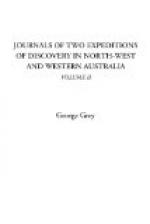16. One mode of evading this difficulty would be to empower the court to receive evidence from the natives in all cases relating solely to themselves without the witness being sworn, only allowing testimony of this nature to hold good when borne out by very strong circumstantial evidence; secondly to empower the court always to receive evidence from natives called on by a native prisoner in his defence, such evidence being subject to the before-named restrictions.
17. The fact of the natives being unable to give testimony in a court of justice is a great hardship on them, and they consider it as such; the reason that occasions their disability for the performance of this function is at present quite beyond their comprehension, and it is impossible to explain it to them. I have been a personal witness to a case in which a native was most undeservedly punished, from the circumstance of the natives who were the only persons who could speak as to certain exculpatory facts not being permitted to give their evidence.
18. There are certain forms in our colonial courts of justice as at present conducted which it is impossible to make a savage comprehend. I attended one quarter-sessions at which a number of natives were tried on a great variety of charges. Several of them were induced to plead guilty, and on this admission of their having committed the crime sentence was pronounced upon them. But when others denied their guilt, and found that this denial produced no corresponding result in their favour, whilst at the same time they were not permitted to bring forward other natives to deny it also, and to explain the matter for them, they became perfectly confounded. I was subsequently applied to by several intelligent natives to explain this mystery to them, but I failed in giving such an explanation as would satisfy them.
19. The natives being ignorant of our laws, of the forms of our courts of justice, of the language in which the proceedings are conducted, and the sentence pronounced upon them, it would appear that but a very imperfect protection is afforded them by having present in the court merely an interpreter (very often an ignorant man) who knows nothing of legal proceedings and can be but very imperfectly acquainted with the native language: it must also be borne in mind that the natives are not tried by a jury of their peers, but by a jury having interests directly opposed to their own, and who can scarcely avoid being in some degree prejudiced against native offenders. From these considerations I would suggest that it should be made binding upon the local government in all instances (or at least in such instances as affect life) to provide a counsel to defend native prisoners.
20. Some other principal preventives to the civilization of the aborigines, in addition to those I have already stated, are:
1. The existence of an uncertain and irregular demand for their labour: thus they may have one day sufficient opportunity afforded them for the exertion of their industry, whilst the next day their services are not required, so that they are compelled once more to have recourse to their former irregular and wandering habits.




